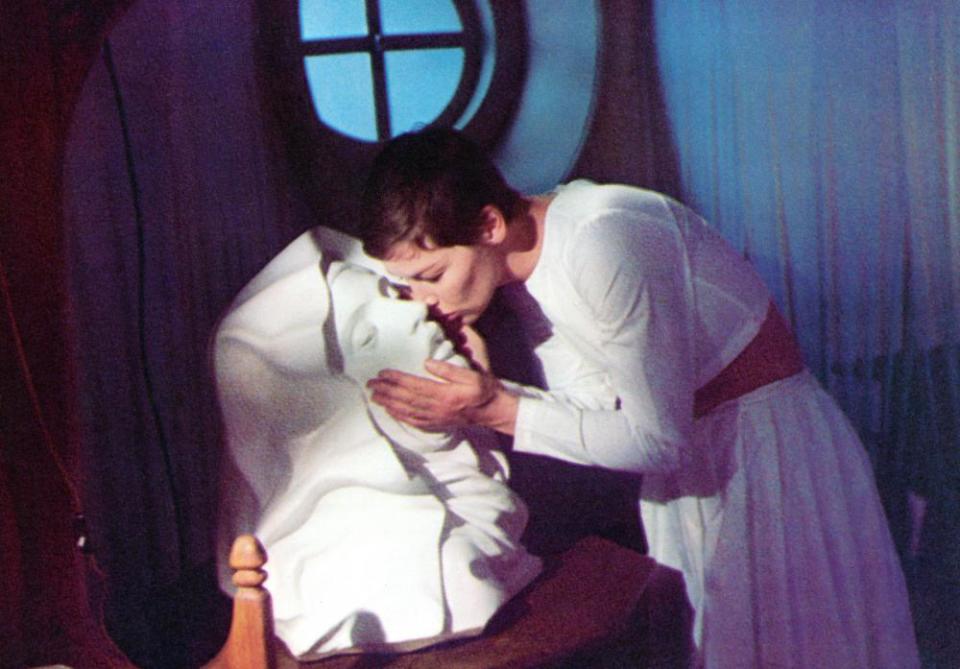Fierce, sensual, cerebral: Glenda Jackson brought class to cinema
For a brief, intense period in the 70s, Glenda Jackson was the very epitome of bohemian Brit chic in the movies: gamine in a worldly English way, intellectual, liberated and frank but with a capacity for demure naivety. This was a period that gloriously co-existed with her recurring appearances on The Morecambe and Wise Show. Jackson revered Eric and Ernie to the end of her life, because apart from their own value, her guest-spots on their programme led to her being cast in the 1973 Hollywood comedy A Touch of Class, which in turn gave Jackson her second Oscar, the title tacitly describing what this Rada-trained English actor was giving the movie. The first Oscar was for playing Gudrun in Lawrence’s Women in Love, a film which became part of her longstanding association with Ken Russell, a film-maker who respected her distinctive combination of seriousness, playfulness and sexiness.
Jackson had made an impression in the movies in the late 60s with Peter Brook’s film version of Marat/Sade as Charlotte Corday, the role she had played on the Broadway stage, and also in Peter Medak’s cult item Negatives, opposite Peter McEnery, as the couple who like to fantasise about being the murderer Dr Crippen and his lover Ethel Le Neve. But the Lawrentian drama Women in Love in 1969 took her aura of countercultural daring closer to the mainstream, in which she played the sensual Gudrun, entranced with Gerald Crich, played by that other seductive icon, Oliver Reed. Of course, all women in that film were bound to be upstaged by the sausage-party outrageousness of Oliver Reed and Alan Bates wrestling naked in front of the fire. But Jackson, in her angular poise and hungriness, was the film’s driving force.
In 1971, Jackson was in three major films and a BBC TV drama: in Ken Russell’s The Boyfriend she had a cameo as the star furious at the success of her stand-in, played by Twiggy (whose own faintly androgynous image was a distant cousin to Jackson’s). She embodied glacial hauteur and loneliness as Elizabeth I in Mary, Queen of Scots, and played the same role, effectively simultaneously, in Elizabeth R on BBC Television – a performance which made possible Cate Blanchett’s performance in the role years later. And there was also her participation in the bisexual menage a trois, very shocking in its day, in Sunday Bloody Sunday, as the woman having an affair with Peter Finch’s doctor who is in turn involved with a younger man (Murray Head), with whom he had a much-commented-upon (but closed-mouth) onscreen kiss. As in Women In Love, it was arguably the men who got to do the transgressing, but again Jackson supplied the sophistication and the sang-froid. In Ken Russell’s hallucinatory The Music Lovers, she was the endlessly lustful and errant Nina, wife of Richard Chamberlain’s Tchaikovsky.
It was in A Touch of Class, opposite George Segal – another actor destined to be associated with this Hollywood era – that Jackson became a mainstream Hollywood star, winning her second Oscar, and for all that this was a tame commercial picture compared to her earlier work, it did give her the screen time and the presence that she really hadn’t had yet, and she got to show that she could headline a film and do romantic comedy with the very best of them.

This should have kickstarted a Hollywood career at the very top, but perhaps the banality of that outcome did not appeal to Jackson, who did not want to accept the safe roles, although she did try to rekindle the transatlantic odd-couple comedy chemistry with George Segal in Lost and Found (1979) and something similar with Walter Matthau in House Calls (1978). (A generation later, Richard Curtis was to show that this combination works more reliably with a Brit male and an American female.)
Related: Glenda Jackson: a life in pictures
She picked up another Oscar nomination for playing Hedda Gabler in Trevor Nunn’s screen version in 1975, and a Golden Globe nomination for playing Sarah Bernhardt in Richard Fleischer’s The Incredible Sarah (1976). She was the moodily discontented Englishwoman abroad in Joseph Losey’s The Romantic Englishwoman. She was in the filmed-theatre production of Genet’s The Maids and in Damiano Damiani’s The Devil is a Woman in 1974, part of that era’s knack for eliding nazism with disturbing sexuality. But Jackson’s restless performing intelligence was to take her to theatre and television as well, and also of course into politics, doing ads for Neil Kinnock and finally becoming a Labour MP and taking a break from showbusiness entirely. When she came back, it was to do award-winning work on the small screen and it’s a shame for the British movie industry that she couldn’t be tempted back into the cinema, too. With her fierce presence, her unselfconscious physicality, her spiky, tactlessly sensual and cerebral force, Jackson made the weather of any picture she was in.

 Yahoo Movies
Yahoo Movies 
